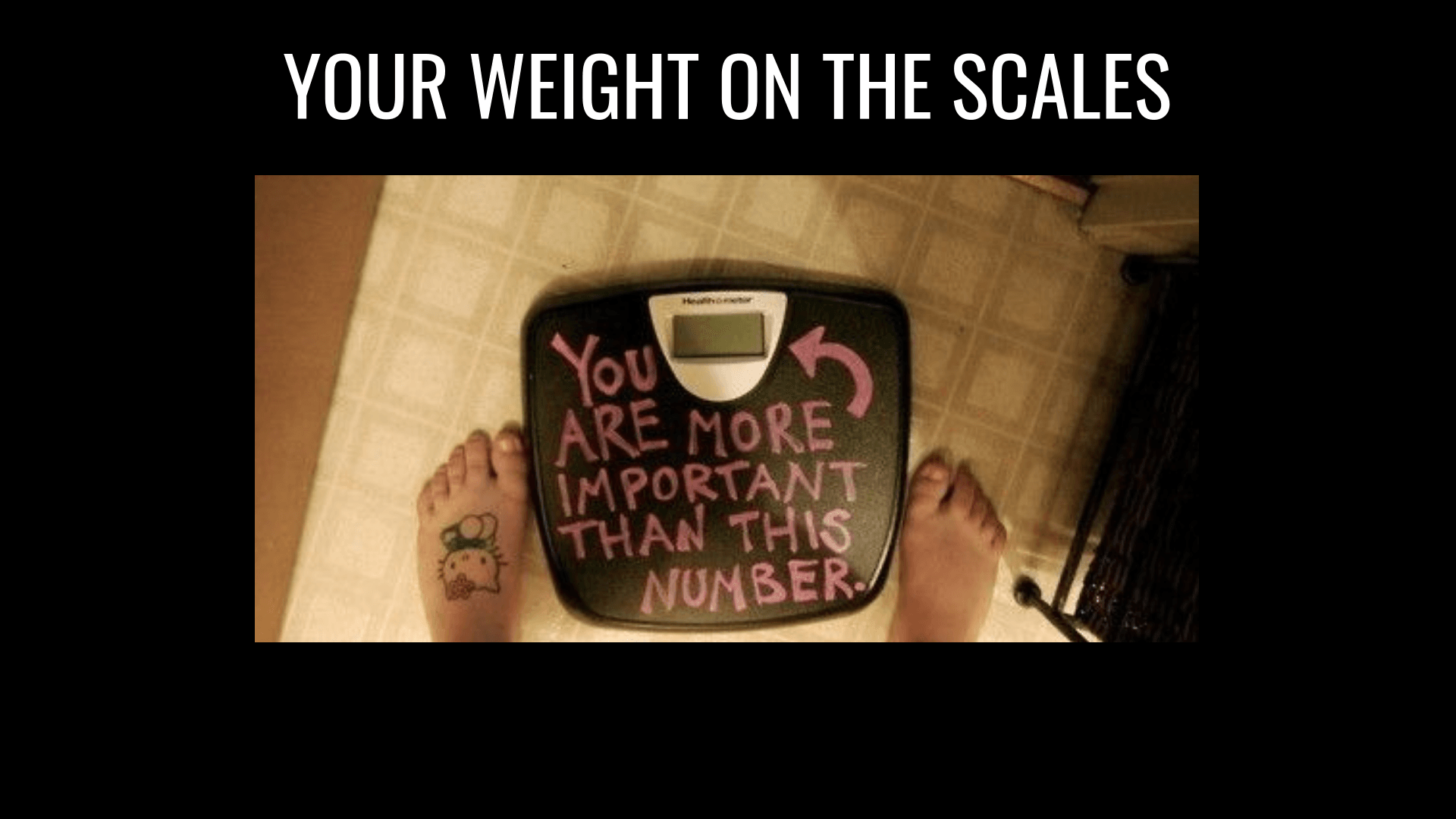Weight on the scales
While this isn’t the be all and end all of how to measure progress, it’s still a super useful way to measure progress.

If we’re aiming to lose body fat, then a reduction in total body weight is usually going to mean that we’ve succeeded in our goal and have reduced our total body fat.
With that being said, if we’re aiming to build muscle a gradual increase in our body weight can be a good sign.
The best practice for weighing ourselves is:
First thing in the morning, before eating or drinking anything, and after going to the toilet.
A great guideline for fat loss progress is between 0.5% and 1% of total body weight per week.
EG weigh in at 100kg On Monday, weigh in at 99.5KG The following Monday. This is a good indication that we’ve lost body fat.
A good guideline for muscle gain is between 0.5% and 1.5% of total body weight per month.
EG weigh in at 100kg on the first of January, weigh in again on 1st February and 101kg. The chances are that extra kilo is going to be made up of majority lean muscle.
These numbers are scale-able, and the more advanced you are in terms of fat loss or building muscle the lower the percentage will become.
There are several factors to take into account when weighing ourselves, these include, but are not limited to:
- Time of day
- How stressed you are
- Whether you’ve been to the toilet
- How much you eaten and drank
- How much sleep you’ve had
- Whether you’ve trained
These all matter when considering our weight because:
TIME OF DAY
The time of day can matter because it can mean we’re either full of food, or completely empty.
This makes a difference to weight, as after we eat/drink we put weight on. If we’re weighing ourselves in the morning, but have eaten very late the night before, this can scew our results.
STRESS
Stress matters because it can affect our weight in several ways, stress causes the release of cortisol or the stress hormone.
When cortisol levels are high this can lead to an increase in fatigue and muscle weakness, plus high cortisol can also help cause higher insulin levels, your blood sugar drops through the floor and you end up craving calorie dense sugary, fatty foods, which can lead to overeating.
TOILET BREAKS
As food and drink weighs certain amounts, the amount that it weighs is going to affect our weight.
As an example a litre of water weighs about a kilo, so weigh yourself, then drink 2 litres of water, then weigh yourself again without going to the toilet, and you’ll have put two kilos on.
SLEEP
Much like stress, lack of sleep affects hormone balance.
When you’re low on sleep you’re more likely to consume extra calories, and you’re less able to burn off those calories!
This basically means that the extra calories we've eaten are harder to burn off because our body thinks we need to store them (weirdly our bodies are trying to protect us in this instance) and where we are sleep deprived we end up storing these calories as fat, rather than burning them as energy.
Plus low sleep levels can lead to increase in the production of cortisol, which in turn can spur on our appetite!
TRAINING
Training can affect your weight, in the simplest form, we may have trained and lost half a kilo through sweat. If we haven’t re-hydrated and eaten anything, this will look like we’ve lost weight, however, if we train and lose half a kilo through sweat, then re-hydrate with a litre of water (remember a litre is equal to a kilo) it can look like we’ve put on half a kilo. Plus if we’ve eaten, this is going to add to the ‘weight gain’ or ‘false weight gain’
Whether we’ve been to the toilet affects weight gain, as if we’re full of water and food, we’re going to be heavier, whereas if we’re empty we’re going to be lighter!